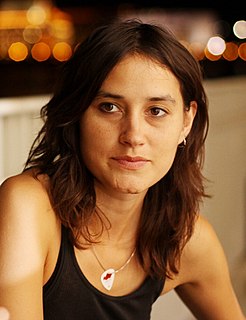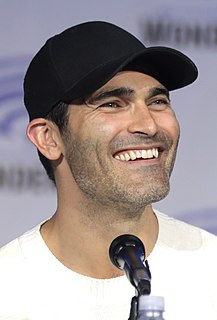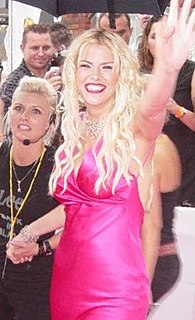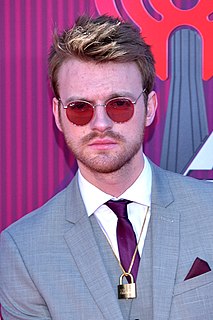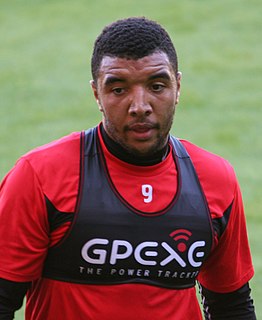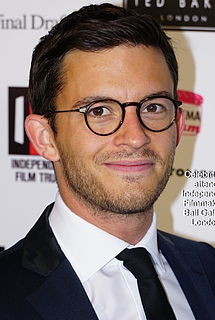A Quote by Quentin Tarantino
I like it when somebody tells me a story, and I actually really feel that that's becoming like a lost art in American cinema.
Related Quotes
I think the best thing about music is that someone could be writing a song that's so personal, and it tells so many other people's story at the same time. It kind of exemplifies that we are all kind of on the same wave[length] - it's amazing how comforting somebody else's story can be, because we have experienced their story in some way or another, and I can totally relate, and I get to feel that feeling and the expression of that emotion. I get to feel like as a listener, that somebody understands me, which is pretty incredible.
I love sitting down with my friends at dinner and actually telling them a story, as opposed to going, "Hey, did you see that thing I posted on Instagram?" For me, I would so much rather sit there and actually share a story with somebody and have somebody tell me about their trip, or things like that. I don't need to see it.
Why do people go to the cinema? What takes them into a darkened room where, for two hours, they watch the play of shadows on a sheet? The search for entertainment? The need for a kind of drug? ..I think that what a person normally goes to the cinema for is time: for time lost or spent or not yet had. He goes there for living experience; for cinema, like no other art, widens, enhances and concentrates a person’s experience-and not only enhances it but makes it longer, significantly longer. That is the power of cinema: ‘stars’, story-lines and entertainment have nothing to do with it.
I think the performances that really communicate with me are the ones where I don't feel like I'm watching someone and thinking: "They're doing some really good acting." It's when I'm literally completely consumed by the story-telling and the actor or actress is evoking something in me. I think that's so powerful and cinema and TV has so much power.
There's also an immediacy to everything that has changed everybody's expectations. Now if I can't get a hold of somebody on their cell phone I'm, like, angry with them. And in my mind, all the things that I really value in terms of art, really good novels or films or comics, I know they all take a long, long time to create, and they take a lot of concentration and dedication...and I just feel like the training for that is becoming more and more rare when people are used to seeing things like YouTube clips, and being able to acquire things instantly.
I think my first general rule is that most of my experiences are not that interesting. It's usually other people's experiences. It's not that entirely conscious. Somebody tells me a story or, you know, repeats an anecdote that somebody else told them and I just feel like I have to write it down so I don't forget - that means for me, something made it fiction-worthy. Interesting things never happen to me, so maybe two or three times when they do, I have to use them, so I write them down.
Narrative, fiction filmmaking is the culmination of several art forms: theater, art history, architecture. Whereas doc filmmaking is more pure cinema, like cinema verité is film in its purest form. You're taking random images and creating meaning out of random images, telling a story, getting meaning, capturing something that's real, that's really happening, and render this celluloid sculpture of this real thing. That's what really separates the power of doc filmmaking from fiction.
It's really funny to me that I get called a workhorse or somebody who's really good at making other people better in the ring. I feel like I'm good at every aspect of this. I feel like I'm a great talker; I feel like I'm a great representative of the company. I broke records in college. I have an amateur background with fighting skills.

